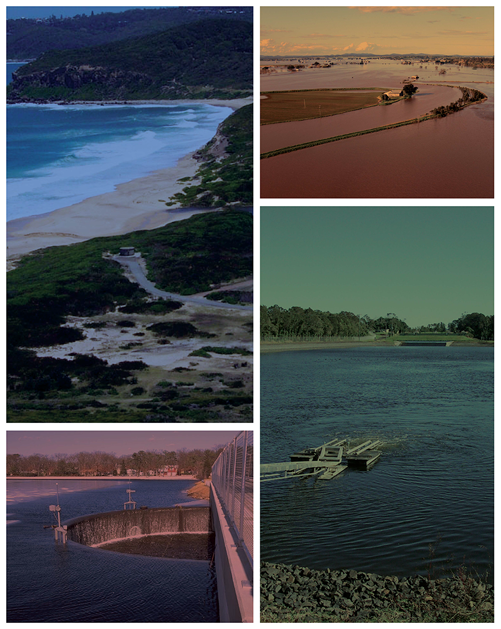The next Water Panel even is titled What Can We Learn About Water Availability From The Pan Evaporation Record? And is scheduled for 12th July in a special lunch session 12-1pm. Registration is free for EA members but you will need to pre-register to get access to the online session.
Abstract
Changes in atmospheric evaporative demand can alter water flux from the landscape, impacting water security. Evaporation pans are widely used to measure and investigate these dynamics. Declines in Australian pan evaporation were reported between the 1970s and 2000s (despite increasing temperatures) due to decreases in wind speed, a phenomenon labelled the ‘pan evaporation paradox’. We revisited this finding with data up to 2016 using a flexible regression technique to identify changes in trends over time. We found that the trends largely reversed in the mid-1990s, when pan evaporation increases were driven by rising vapour pressure deficits (decreasing relative humidity) due to increasing air temperatures. If evaporative demand continues to rise, it could increase water loss from storages and shallow soil moisture, with implications for water and environmental management. To this extent changes in rainfall, soil moisture and streamflow since the 1960s were examined using the Bureau of Meteorology’s Australian Water Resources Assessment Landscape model (AWRA-L). Streamflow droughts, measured by the standardised runoff index, are indeed increasing across large parts of Australia, with these increases more widespread than changes in rainfall alone.
Dr Clare Stephens
Clare is a post-doctoral researcher with the UNSW Water Research Centre. Her key interests are in hydrology and climate change, with a focus on ecohydrologic modelling and data analysis. She obtained her PhD from UNSW, researching the performance robustness of hydrologic models under climate change. Clare was a 2016 Westpac Future Leaders scholar and the 2015 Young Environmental Engineer of the Year (Engineers Australia). Before starting her research career, she was a chartered surface water engineer working on flood risk management and infrastructure design projects.
Dr Conrad Wasko
Conrad Wasko is an ARC DECRA Fellow at the University of Melbourne. Conrad has over ten years’ experience in both consulting and research. His research has won him numerous awards including the MSSANZ Early Career Research Excellence Award and the Lorenz G. Straub award for best PhD thesis globally in water engineering. He has contributed to the current national guidelines on flood estimation and his current research focuses on understanding the effects of climate change on hydrology and specifically extreme events.



Leave a Reply